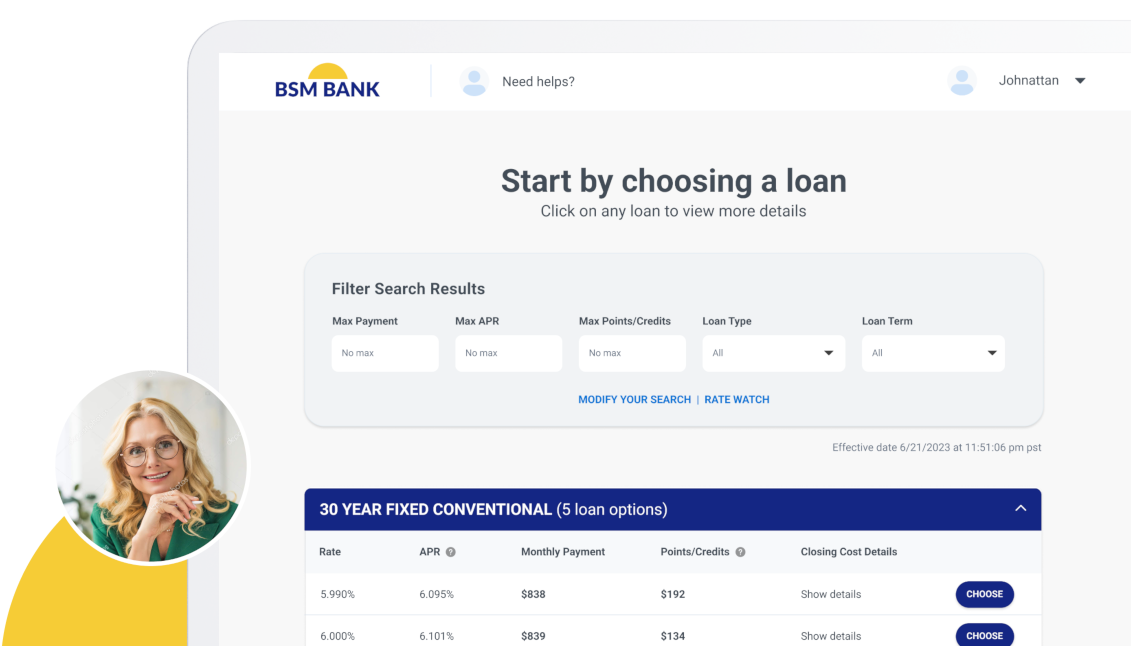Mortgage compliance departments ensure that mortgage loans are originated, underwritten and serviced in compliance with applicable laws and regulations.
These departments must be aware of and comply with a wide range of federal and state laws, as well as industry standards and best practices.
To accomplish this, mortgage compliance departments must work closely with regulatory agencies and other industry stakeholders to stay up-to-date on the latest rules and regulations.
Here are nine key agencies that every mortgage compliance department needs to know:
1. Consumer Financial Protection Bureau (CFPB):
Created: 2011
The CFPB is the primary regulatory agency responsible for enforcing federal consumer financial protection laws, including mortgage lending rules. The CFPB has broad authority to investigate and enforce violations of consumer protection laws, and can impose penalties and other remedies for non-compliance.
One of the CFPB’s primary areas of focus is the Truth in Lending Act (TILA), which requires lenders to provide borrowers with accurate information about the cost of credit. The CFPB has implemented a number of rules to help ensure compliance with TILA, including the Loan Originator Compensation Rule, which prohibits mortgage loan originators from receiving compensation based on the terms of the loan.
The CFPB also enforces the Real Estate Settlement Procedures Act (RESPA), which requires lenders to provide borrowers with accurate information about the costs associated with closing a mortgage loan. This includes the creation of a Loan Estimate and Closing Disclosure that must be provided to borrowers within specific time frames. Failure to comply with RESPA can result in significant penalties and legal liability.
2. Federal Housing Finance Agency (FHFA):
The FHFA regulates Fannie Mae, Freddie Mac, and the Federal Home Loan Banks, which are key players in the mortgage industry. The FHFA’s primary focus is on ensuring the safety and soundness of these entities, as well as their compliance with federal laws and regulations.
In addition to overseeing these entities, the FHFA has also implemented a number of rules that affect mortgage lenders and servicers. For example, the FHFA’s Servicing Alignment Initiative requires servicers of Fannie Mae and Freddie Mac loans to adopt certain standards for managing delinquent loans, including offering loan modifications and other foreclosure alternatives.

3. Federal Reserve Board (FRB):
The FRB plays a role in regulating mortgage lending through its oversight of the banks that provide mortgages, as well as its implementation of monetary policy. The FRB has implemented a number of rules related to mortgage lending, including the Ability-to-Repay and Qualified Mortgage Rule, which requires lenders to make a reasonable determination that a borrower has the ability to repay a mortgage loan.
The FRB also oversees the Home Mortgage Disclosure Act (HMDA), which requires lenders to report data on their mortgage lending activities, including information on loan amounts, interest rates, and borrower demographics. This data is used to help identify trends and potential fair lending violations.
4. Department of Housing and Urban Development (HUD):
HUD is responsible for enforcing fair housing laws and promoting affordable housing, which are important considerations for mortgage compliance departments. HUD’s Fair Housing Act prohibits discrimination in housing based on race, color, national origin, religion, sex, familial status, and disability.
HUD also oversees the Federal Housing Administration (FHA), which provides mortgage insurance to borrowers who might not otherwise qualify for conventional mortgage loans. FHA loans are subject to specific requirements and guidelines, including a maximum loan amount, minimum credit score, and minimum down payment.

5. Office of the Comptroller of the Currency (OCC):
The Office of the Comptroller of the Currency (OCC) is an independent bureau within the US Department of the Treasury that regulates and supervises national banks and federal savings associations. The OCC’s mission is to ensure that these institutions operate in a safe and sound manner, and comply with applicable laws and regulations.
Mortgage compliance departments need to be familiar with the OCC’s regulations and supervisory expectations, as well as any changes to these regulations. Compliance with OCC regulations is essential for banks and savings associations that originate mortgages, as failure to comply can result in enforcement actions and penalties.
6. Department of Justice (DOJ):
The Department of Justice (DOJ) plays a significant role in mortgage loan compliance by enforcing federal laws related to mortgage lending and ensuring that lenders and other mortgage industry participants operate in compliance with these laws.
The DOJ has several divisions that are involved in mortgage loan compliance, including the Civil Rights Division, the Antitrust Division, the Consumer Protection Branch, and the Fraud Section. These divisions work together to investigate and prosecute violations of federal laws related to mortgage lending, such as the Fair Housing Act, the Equal Credit Opportunity Act, the False Claims Act, and the Financial Institutions Reform, Recovery, and Enforcement Act.
The DOJ is responsible for enforcing civil and criminal penalties for violations of federal mortgage lending laws, including fines, restitution, and even imprisonment for individuals found to have engaged in fraudulent or criminal behavior. The DOJ also has the authority to enter into settlement agreements with lenders and other mortgage industry participants to resolve alleged violations of federal laws.
Mortgage compliance departments need to be aware of the DOJ’s role in mortgage loan compliance and the potential consequences of non-compliance with federal laws. Compliance with federal mortgage lending laws is not only important to avoid DOJ enforcement actions and penalties but also to maintain the trust and confidence of customers and investors.

7. The National Credit Union Administration (NCUA):
The NCUA is an independent federal agency that regulates and supervises credit unions in the United States. The NCUA’s primary mission is to ensure the safety and soundness of the credit union system and protect the interests of credit union members.
In terms of mortgage loan compliance, the NCUA has several responsibilities. First, the NCUA establishes regulations and supervisory guidance related to mortgage lending for credit unions. This includes regulations related to underwriting standards, disclosure requirements, and consumer protection laws, among others.
Second, the NCUA is responsible for conducting examinations of credit unions to ensure compliance with federal regulations related to mortgage lending. These examinations typically include a review of the credit union’s policies and procedures, loan files, and other documentation to assess the credit union’s compliance with applicable laws and regulations.
Third, the NCUA works closely with other federal and state agencies involved in mortgage loan compliance, including the Consumer Financial Protection Bureau (CFPB), the Federal Deposit Insurance Corporation (FDIC), and state regulators, to coordinate regulatory efforts and ensure consistent enforcement of regulations.
Overall, the NCUA plays an important role in ensuring that credit unions operate in compliance with federal regulations related to mortgage lending. Mortgage compliance departments at credit unions need to be familiar with the NCUA’s regulations and supervisory guidance, and ensure that their policies, procedures, and loan origination practices align with these requirements. Failure to comply with NCUA regulations can result in penalties and enforcement actions, as well as reputational damage and loss of member trust.
Subscribe to BeSmartee 's Digital Mortgage Blog to receive:
- Mortgage Industry Insights
- Security & Compliance Updates
- Q&A's Featuring Mortgage & Technology Experts
8. The Federal Financial Institutions Examination Council (FFIEC):
The FFIEC is an interagency body composed of five federal financial regulatory agencies, including the Board of Governors of the Federal Reserve System, the Federal Deposit Insurance Corporation, the National Credit Union Administration, the Office of the Comptroller of the Currency, and the Consumer Financial Protection Bureau. The FFIEC’s primary mission is to promote uniformity and consistency in the supervision of financial institutions and to improve the efficiency and effectiveness of the regulatory process.
In terms of mortgage loan compliance, the FFIEC plays a critical role in providing guidance and supervisory oversight to ensure that financial institutions comply with applicable laws and regulations related to mortgage lending. The FFIEC has established various guidance documents and examination procedures related to mortgage lending, which provide detailed instructions on how to comply with applicable laws and regulations.
The FFIEC’s guidance documents and examination procedures cover a range of topics related to mortgage lending, including underwriting standards, fair lending practices, loan servicing, and risk management. These documents also provide detailed instructions on how to conduct mortgage lending examinations and what examiners should look for when assessing a financial institution’s compliance with applicable regulations.
Mortgage compliance departments at financial institutions need to be familiar with the FFIEC’s guidance documents and examination procedures and ensure that their policies, procedures, and loan origination practices align with these requirements. Failure to comply with FFIEC guidance and examination procedures can result in penalties and enforcement actions, as well as reputational damage and loss of customer trust. By adhering to the FFIEC’s guidance, financial institutions can ensure that they are operating in compliance with applicable regulations and best practices.
9. The Conference of State Bank Supervisors (CSBS):
The CSBS is a professional organization composed of state banking regulators in the United States. The CSBS’s mission is to support state regulators in their supervisory responsibilities and to promote uniformity and consistency in the regulation of state-chartered banks.
In terms of mortgage loan compliance, the CSBS plays an important role in coordinating regulatory efforts and promoting compliance with applicable laws and regulations. The CSBS provides a forum for state regulators to discuss emerging issues related to mortgage lending and to share information on best practices for compliance.
The CSBS also works closely with other federal and state agencies involved in mortgage loan compliance, including the Consumer Financial Protection Bureau (CFPB), the Federal Deposit Insurance Corporation (FDIC), and the National Credit Union Administration (NCUA), to coordinate regulatory efforts and ensure consistent enforcement of regulations.
Mortgage compliance departments at state-chartered banks need to be familiar with the CSBS’s guidance and supervisory expectations, and ensure that their policies, procedures, and loan origination practices align with these requirements. Compliance with CSBS guidance is essential for banks that originate mortgages, as failure to comply can result in enforcement actions and penalties.
Overall, the CSBS plays an important role in ensuring that state-chartered banks operate in compliance with federal and state regulations related to mortgage lending. By coordinating regulatory efforts and promoting compliance with best practices, the CSBS helps to ensure that the mortgage industry operates in a safe and sound manner, and that consumers are protected from fraudulent or abusive practices.
Why Should Mortgage Lenders Care?
It is essential for mortgage lenders to be familiar with the agencies that regulate lending practice
Failure to comply with these regulations can result in penalties, fines, and reputational damage, as well as loss of customer trust and investor confidence.
There are a number of reasons why it is important for mortgage lenders to be familiar with the agencies that regulate lending practices:
Compliance with applicable regulations
Mortgage lenders must comply with a complex web of federal and state regulations related to mortgage lending. These regulations cover a range of topics, including underwriting standards, disclosure requirements, fair lending practices, and consumer protection laws.
By being familiar with the agencies that regulate lending practices, mortgage lenders can ensure that they are operating in compliance with applicable regulations.
Avoidance of penalties and fines
Failure to comply with applicable regulations can result in penalties and fines from regulatory agencies. These penalties can be significant and can have a material impact on a lender’s bottom line. By being familiar with the agencies that regulate lending practices, mortgage lenders can avoid penalties and fines by ensuring that their policies, procedures, and loan origination practices align with regulatory requirements.
Protection of customer and investor trust
Compliance with applicable regulations is not only important for avoiding penalties and fines but also for protecting the trust and confidence of customers and investors. Non-compliance with regulatory requirements can result in reputational damage and loss of customer trust, which can have long-term impacts on a lender’s business.
Improved risk management
Compliance with applicable regulations can also improve a lender’s risk management practices. By adhering to regulatory requirements, lenders can reduce the risk of regulatory enforcement actions, lawsuits, and other legal challenges. This can help to protect the lender’s financial health and ensure that it is well-positioned to weather economic downturns or other challenges.
Overall, being familiar with the agencies that regulate lending practices is essential for mortgage lenders that want to operate in compliance with applicable laws and regulations, avoid penalties and fines, protect customer and investor trust, and improve their risk management practices.




